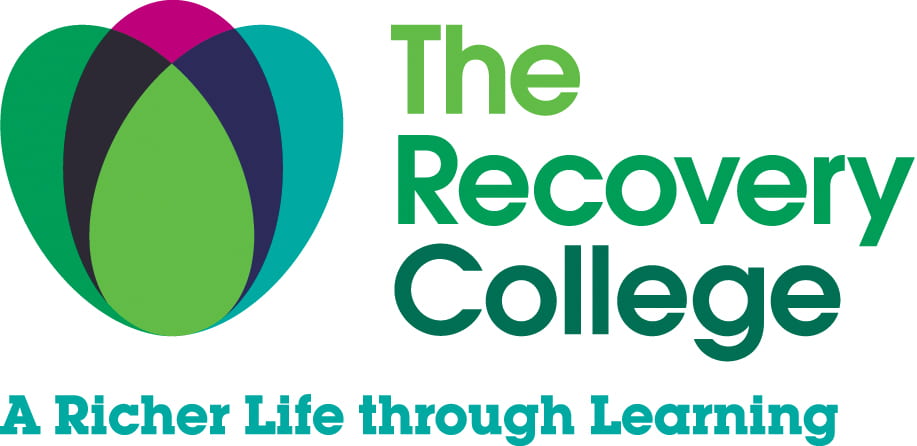Reflections from the Recovery College on online co-production during COVID-19
By Rory, on 20 June 2020
This blog was written by Ana and Ksenija from the Recovery College, an organisation aiming to break down barriers and reduce the stigma of mental health by emphasising hope, control and opportunity to all members of the Camden and Islington community through their free courses.
Thoughts from Ana
The transition from face-to-face to online recovery and wellbeing course co-production and co-delivery at the Recovery College has been equally a challenge and a blessing for me.
Co-production via online platforms such as Zoom and Microsoft Teams has enabled us to work together and co-deliver sessions despite working remotely and with minimal IT equipment and resources at times. This new way of working taught me that stepping out of my comfort zone can be an opportunity rather than a nerve-wracking process. Feeling slightly nervous, stressed and even anxious is normal when adjusting to new routines and significant life changes, but also a reassuring sign of our shared humanity to feel emotions of all kinds.
What helped me more than anything in co-production, especially with new tutors, was taking time to get to know each other on a personal level. We talked about our professional and lived experience, our strengths and resources before moving on to course content and structure. Building trust and learning to be patient, accepting, flexible, and kind to both oneself and others in stressful moments is crucial, especially when, for example, technology lets you down or when you need to respond wisely to last minute changes.
For me, a crisis brings not only stress, challenges and grief, but also opportunities for new discoveries, learning and creativity. Learning to let go of wanting things to be a certain way and adjusting to new habits of working, connection and communication requires a great deal of self-awareness, energy, effort, re-evaluation and reflection.
Obviously, our professional and personal lives have been severely disrupted and turned upside down by an unprecedented crisis in a very short time. We had to find new ground that was solid and safe enough to hold us when wobbly, doubting and vulnerable, and able to warn us when we pushed past our limits or resources. I was lucky enough to access this safe space most of the time, which I am very grateful for. Virtual co-production has come with an opportunity to develop new skills, shape new ways of working and meaning-making, and let go of unrealistic expectations and attachments.
My top 10 tips from my direct experience of online course co-production may be of help, especially for those in teaching or training roles:
- Discuss mutual expectations and be ready to adjust plans
- Get to know and play to each others’ strengths
- Remember that virtual communication is tiring for all, so keep it brief and focused
- Be patient, kind, and understanding to both yourself and each other at all times
- Run through the course content together at least once prior to course delivery
- Be ready to encounter unexpected technological glitches and have a back-up plan
- Keep co-production meetings and teaching sessions to a maximum of 45 minutes
- Plan for a debrief meeting with your co-hosts ASAP after session completion
- Resource yourself or focus on self-care both pre and post course delivery if possible
- Use your breath as an anchor to stay present and awake in the midst of difficulties, and remember that everything is impermanent, and you are not alone

The picture shows a screenshot of Ana and Ksenija during a Zoom call. The call was also joined by a cat!
Thoughts from Ksenija
I would like to echo a lot of what Ana has already shared, and add that for me co-production was at the heart of our response to this challenging situation we all share. I have been very much reminded of the time when I was fleeing war in my country of Ex-Yugoslavia in 1994 and how important it was then to be in touch with people and get support from one another. Of course, in those times we didn’t have the technology we do now, so I feel that this is an advantage for us if we learn how to use it wisely.
In April the Camden & Islington Recovery College co-created a Recovery Navigator service with the Trust’s Crisis team. I am very proud of the fact that in a short space of time we managed to co-create the whole service. Half of the College team has taking referrals and calling the most vulnerable people in our community to give them emotional and practical support, signposting them to resources and sharing wellbeing tools we teach at our courses.
As Ana has also said, working online and using the telephone to work with people has increased massively as we have been unable to meet face to face or host groups. Working online and over the phone has been challenging and rewarding at the same time. It has meant we can still be in touch as a team and with our collaborators and people in the community. Seeing people on video meetings made working together feel more joined up and personal, but at the same time it meant there was more preparation involved. It also meant I used self-care tools such as pausing to stretch, breath and have cup of tea to help stay focused for long periods of time.
My three top tips for virtual co-production are:
- Be natural in your communication with others
- Go for a short walk after a long online session
- Give yourself space to connect with your fears and what you find challenging.
To learn more about what we offer at Recovery College, please visit:
Our website – All our online courses are free and open to all.
Our Twitter page @CI_RecoveryColl Or call the Recovery College main line at 020 3317 6904.
 Close
Close


